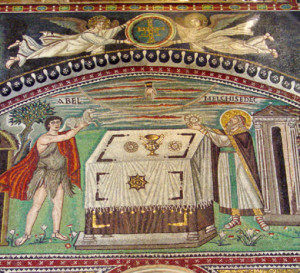Thoughts on Today’s Lessons for March 22, 2015
First Reading: Jeremiah 31:31-34Have you noticed a pattern in our Sunday readings during Lent? The Gospels are taking us on a quick journey through Jesus’ life from the Jordan to Jerusalem; the Old Testament readings showcase God’s continuing covenants with the people. Today, the Prophet Jeremiah, recognizing that the people in exile have broken the covenant their ancestors made at Mount Sinai, announces a new covenant, not written on mere stone but directly on our hearts. Having God’s love indelibly marked on our hearts offers us a way to remember, even when we’re struggling, that we are meant to love God and our neighbor.
Psalm: Psalm 51:1-13
Legend tells us that King David himself wrote this psalm. In a powerful narrative, the prophet Nathan had confronted David after David sent his general, Uriah, to die in battle so he could take Uriah’s beautiful wife Bathsheba for himself. In poetic words that reflect covenantal ideas, the Psalmist pours out David’s shame and grief. He admits to wickedness, makes no excuses, but begs for God’s mercy and forgiveness to restore in him a clean heart. A heart on which God, perhaps, can write God’s covenant of love.
Second Reading: Hebrews 5:5-10
The letter to the Hebrews is thought to be an appeal to Jewish Christians who had returned to their older faith to avoid persecution. Its unknown author makes the case that Jesus, as Christ, stands in the great tradition of Jewish high priests that extends all the way back to Melchizedek, the king and great high priest, who blessed Abram just before God made the first covenant with Abram and Sarai.
Gospel: John 12:20-33
Oddly, it is not clear from John’s Gospel whether Jesus actually did consent to meet with his Greek visitors. John places them in this passage, perhaps, to emphasize that Jesus will draw in all people: Jew and Greek, men and women, slave and free; everyone. Now, as John’s narrative moves toward jesus’ last Passover, his passion and death, Jesus has words for the world and the ages to hear: Just as Jesus must die to bear the fruit of salvation through his resurrection, we are the seeds of faith, called to grow in discipleship. Do we lie fallow and die, or do we grow and bloom where we are planted, bearing fruit as we follow and serve Christ?

